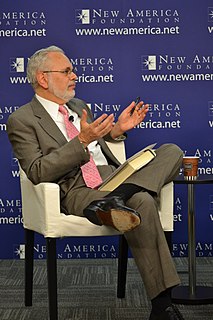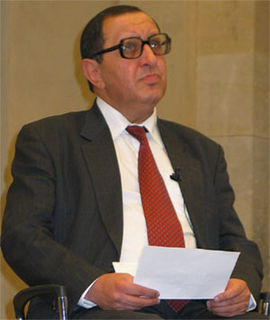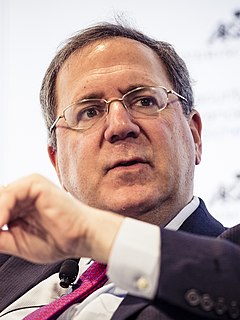A Quote by James Woolsey
Look, I don't think President Obama would have bowed to the ruler of Saudi Arabia if he didn't have oil to the degree that the Saudis do. I think they and other producing states, almost all of whom, except Norway and Canada, are dictatorships or autocratic systems, have thrown their weight around because of oil.
Related Quotes
I saw a report yesterday. There’s so much oil, all over the world, they don’t know where to dump it. And Saudi Arabia says, "Oh, there’s too much oil." They -- they came back yesterday. Did you see the report? They want to reduce oil production. Do you think they’re our friends? They’re not our friends.
Saudi Arabian oil production is at or very near its peak sustainable volume (if it did not, in fact peak almost 25 years ago), and is likely to go into decline in the very foreseeable future. There is only a small probability that Saudi Arabia will ever deliver the quantities of petroleum that are assigned to it in all the major forecasts of world oil production and consumption.
I've been saying for a long time, and I think you'll agree, because I said it to you once, had we taken the oil - and we should have taken the oil - ISIS would not have been able to form either, because the oil was their primary source of income. And now they have the oil all over the place, including the oil - a lot of the oil in Libya, which was another one of her disasters.
Allowing an independent and sovereign Iraq could be a nightmare for the United States. It would mean that it would be Shi'ite-dominated, at least if it's minimally democratic. It would continue to improve relations with Iran, just what the United States doesn't want to see. And beyond that, right across the border in Saudi Arabia where most of Saudi oil is, there happens to be a large Shi'ite population, probably a majority.
High prices can be the result of speculation, and maybe plunging prices can be attributed to the end of speculation, but low prices over time aren't caused by speculation. That's oversupply, mainly by Saudi Arabia flooding the market with low-priced oil to discourage rival oil producers, whether it's Russian oil or American fracking.



































